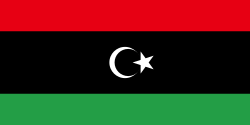| | |||||||||||||
| |||||||||||||
All 55 seats in the House of Representatives | |||||||||||||
This lists parties that won seats. See the complete results below.
| |||||||||||||
 |
|---|
|
General elections were held in Libya on 7 January 1956 to elect the members of the House of Representatives, the lower house of Parliament. [1]
The House of Representatives had 55 seats, one for every 20,000 inhabitants. [2] Following the 1952 elections, political parties and political gatherings had been banned, so all candidates contested the election as independents. As a result, voting was based largely on personality, clan ties, and nepotism. [3] Thirty candidates were elected unopposed. [2]